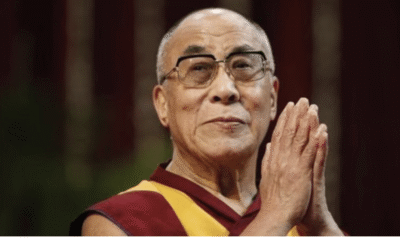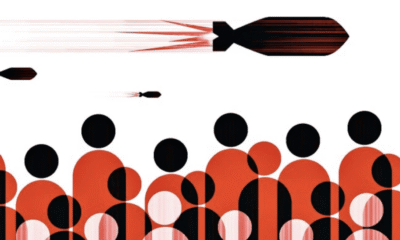
|
Getting your Trinity Audio player ready...
|
India’s democracy, as envisaged by the makers of its Constitution, thrived essentially because of the respect of the leaders for ethical constitutionalism and moral activism of the grassroots activists. Neither should see the other as an enemy and try to bring them down.
There was much scepticism about the idea of universal adult franchise during the making of the Indian Constitution.
The popular understanding about democracies is that they are elected governments. But democracies do not run merely on the basis of elected governments. In 2,500 years, democracies have developed systems of efficient checks and balances — elected and unelected institutions. Such a balance is critical to their success.
In recorded history, the Greeks were the first to experiment with models of government. There were monarchies, oligarchies and democracies among the Greek city-states of the 5th Century BCE. Aristotle, the ancient Greek philosopher, wrote that while monarchies were for the benefit of the monarchs and oligarchies for the benefit of men with means, democracies were for the benefit of men without means. Plato, Aristotle’s guru, was not fully in agreement. The city-state of Sparta was an oligarchy while that of Athens was a raw democracy. Spartans ruled over Athens for a few decades. When they left, the Athenians held a court to punish the supporters of the Spartans. Twenty-one thousand Athenians, all men from privileged backgrounds, assembled in a stadium and voted to declare the philosopher Socrates a collaborator with the Spartans. He was sentenced to death, prompting Plato to dismiss Athenian democracy as a “kleptocracy” — a state of unrestrained political corruption.
Democracy has travelled a long way from those times. It has witnessed the rise of dictators like Hitler and Mussolini, but also many great democrats. Even today, Vladimir Putin in Russia and Joe Biden in America get elected through democratic elections very different from one another. The difference is that in the world’s successful democracies like the US, UK and India, there is a fine balance between the elected and non-elected institutions with enough safeguards.
There was much scepticism about the idea of universal adult franchise during the making of the Indian Constitution. But Rajendra Prasad, the chairman of the Constituent Assembly, who became the first President of India, assured the Assembly’s members about the raw political wisdom of the average Indian as also the strength of the other institutions to safeguard the democratic process. Seven decades of India’s democratic experience bear testimony to the political maturity of the Indian people.
However, India has had its own bruises during this period. The infamous Emergency of Indira Gandhi taught an important lesson that Parliament, the elected branch of democracy often described as the “temple of democracy”, can become a circus and democracies can be imperilled if the rulers succeed in jeopardising the other pillars like the judiciary and free press.
Mahatma Gandhi was not a big admirer of the parliamentary system. He never uttered a harsh word against anybody but used words such as “sterile woman” and “prostitute” for the British parliamentary system. Gandhi’s view was that in the British system, the parliament works only for partisan interest — and not for the national interest. “By political independence I do not mean an imitation to the British House of Commons, or the Soviet rule of Russia or the Fascist rule of Italy or the Nazi rule of Germany. They have systems suited to their genius. We must have ours suited to ours… I have described it as Ram Rajya — sovereignty of the people based on pure moral authority,” he wrote in Harijan in January 1937.
B R Ambedkar too described democracy in India as “only a top-dressing” on an Indian soil “which is essentially undemocratic”. In his famous “Three Warnings” speech, Ambedkar warned that only constitutional means and institutions should be used hereafter instead of the means used during the freedom movement. He also underscored the importance of social democracy for the success of political democracy. Both were responding to the experiences of their times — Gandhi was referring to the tyranny of the British rule and Ambedkar was responding to the oppressive caste system. Neither was against democracy, but both were against the idea of “majoritarian rule”. For Gandhi, democracy meant the weak getting the same chance as the strong. For Ambedkar, it was about giving voice to the voiceless.
For democracies to succeed, both Gandhi and Ambedkar believed that the parliamentary majorities need to be restrained through constitutional ethics and public morality. Constitutional ethics is about leaders respecting constitutional order, conventions and institutions. The Americans have a written constitution, the British don’t. Yet, both developed healthy conventions that safeguard their democracies. There is a beautiful convention in America of the outgoing President leaving a hand-written letter for the incoming one, which the new incumbent of the White House would get to see on the first day in office. “We are just temporary occupants of this office. That makes us guardians of those democratic institutions and traditions — like rule of law, separation of powers, equal protection and civil liberties… Regardless of the push and pull of daily politics, it’s up to us to leave those instruments of our democracy at least as strong as we found them”, Barack Obama wrote in his letter to Donald Trump in January 2017. The elected must protect all the unelected instruments of democracy – judiciary, media and civic organisations.
Gandhi’s greater emphasis was on public morality. He insisted that for India’s democracy to succeed, the Congress should convert itself into a lok sevak sangh and work at the grassroots for social, economic and moral independence of the people. True Gandhians chose syndication at the grassroots rather than election to Parliament or legislative assemblies.
India’s democracy, as envisaged by the makers of its Constitution, thrived essentially because of the respect of the leaders for ethical constitutionalism and moral activism of the grassroots activists. Neither should see the other as an enemy and try to bring them down.
(The article was originally published by Indian Express on November 26, 2020. Views expressed are personal.)



